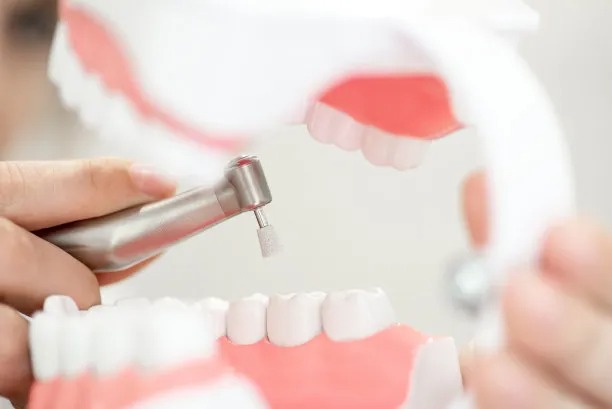Summary: Dental implants represent a revolutionary advancement in restorative dentistry, providing a long-lasting solution for missing teeth. This comprehensive guide outlines the essential aspects of dental implant treatment, including the procedure, types of implants, eligibility criteria, and the numerous benefits they offer. By understanding each component, patients can make informed decisions, ultimately restoring their smiles and improving their overall oral health. The insights provided will help demystify the process while highlighting the transformative impact of dental implants on ones quality of life.
1. Understanding the Dental Implant Procedure

The dental implant procedure primarily involves three stages: consultation, implantation, and restoration. Initially, a thorough assessment of the patients oral health is conducted. X-rays and 3D imaging may also be utilized to understand the jawbones structure, ensuring the suitability for implants. This phase aims to address any underlying issues, such as gum disease, before moving forward.
Following the evaluation, the surgical placement of the implant begins. The dentist or oral surgeon will insert a titanium post into the jawbone, acting as a root for the new tooth. Its crucial to ensure the implant is aligned correctly to support a natural bite and aesthetics. Post-surgery, patients usually require a healing period, known as osseointegration, during which the jawbone integrates with the titanium post.
Once healing is complete, a personalized crown is crafted and attached to the implant. This final stage not only restores functionality but also enhances the overall appearance, making dental implants indistinguishable from natural teeth. This comprehensive process can take several months, but the results are a durable smile that stands the test of time.
2. Types of Dental Implants Available
Dental implants come in various forms, each designed to cater to distinct needs and preferences. The most common types are endosteal and subperiosteal implants. Endosteal implants are placed directly into the jawbone and are the most frequently used form. They provide a solid foundation for crowns, bridges, or dentures, making them ideal for most patients.
Subperiosteal implants, on the other hand, are placed under the gum but above the jawbone. This type is recommended for patients with insufficient bone height and those who wish to avoid extensive bone grafting procedures. Each type has its unique advantages, and dentists will advise on the best option during the consultation phase.
Additionally, some patients may opt for mini dental implants, which are smaller and suitable for smaller spaces in the mouth. These implants are less invasive and typically come with a shorter recovery time. Understanding these various options allows patients to select the most appropriate implant strategy that aligns with their needs.
3. Who is Eligible for Dental Implants?
Eligibility for dental implants hinges on several factors, including overall health, jawbone density, and personal habits such as smoking. A significant assessment will be performed to determine if the jawbone can support an implant. Patients with adequate bone structure or those willing to undergo bone grafting are generally considered good candidates.
Moreover, gum health plays a critical role in eligibility. Sufficient gum tissue is necessary to secure the implant, preventing complications. Patients with active gum disease may be advised to seek treatment prior to considering implants.
Additionally, lifestyle factors also influence candidacy. For instance, smoking can impair healing and reduce the success rate of implants. Therefore, patients are often encouraged to quit smoking or make lifestyle adjustments to enhance treatment outcomes. A pre-screening consultation can effectively outline whether dental implants are a viable option.
4. Benefits of Dental Implants for Patients
Dental implants offer a multitude of advantages, both functional and cosmetic. The primary benefit is significant improvement in chewing efficiency and oral functionality, allowing individuals to enjoy a wider variety of foods without discomfort. This improvement translates to enhanced nutrition and overall well-being.
Cosmetically, dental implants restore a natural appearance, boosting self-esteem and confidence. With their ability to mimic natural teeth closely, patients can smile freely without worrying about dental aesthetics. The permanence of implants, compared to dentures, means they wont slip or shift, providing peace of mind.
Furthermore, dental implants contribute to better oral health overall. Unlike bridges, which require altering adjacent teeth, implants do not compromise neighboring tooth structures. They also prevent bone loss often associated with missing teeth, maintaining facial structure and preventing the sunken appearance that can result from tooth loss.
Summary: In summary, dental implants represent a transformative solution for individuals facing tooth loss, combining advanced technology with a thorough understanding of patient needs. By grasping the full scope of the implant process, the types available, candidacy requirements, and the numerous benefits, patients can make informed choices that enhance their oral health and restore their confidence. Each step of this journey toward a complete smile is worth considering, as it brings long-lasting results.
This article is compiled by Vickong Dental and the content is for reference only.
Vickong Dental
Vickong Dental is a large medical group established in Hong Kong in 2008 by professors from well-known medical universities in Guangdong and Hong Kong, as well as medical doctors from key national '985' universities (including Master's supervisors and senior professors). The chain of branches brings together expert dentists with PhDs and Master's degrees from Hong Kong and Mainland China, committed to providing high-quality dental treatment.
"Vickong Dental Practices the University Motto of 'Healing and Serving Society,' with a Stable Operation for Sixteen Years. It Has Been honored with Hong Kong Enterprise Leaders's Choice,' and is a Global Trusted Implant Center for the Nobel Implant System. Recommended by Hong Kong Metro Broadcast and Guangdong Television, it Serves Customers from Over Thirty Countries and Regions, Gaining the Trust and Favor of Citizens from the Guangdong-Hong Kong-Macau Greater Bay Area and Surrounding Cities.

Thousands of customers' unanimous praise
The most recognized and highly recommended dental service by customers in the Guangdong-Hong Kong-Macau Greater Bay Area
We Ensure You Receive Detailed Care and Attention Here
Hong Kong standards, Shenzhen prices, Your Trusted English-speaking dentists

Vickong Dental Medical-Grade Instrument Disinfection Process
Vickong Dental Medical-Grade Instrument Disinfection Process

Vickong Dental Chain: A Warm and Comfortable Environment for Treatment






Appointment Hours

Q&A
Why choose Vickong Dental?
Vickong Dental practices the university motto 「Medicine to Benefit Society」, with each branch bringing together highly qualified dentists with doctoral and master’s degrees from Hong Kong and the Mainland, and has maintained seventeen years of steady operation。Recipient of 「2024 Hong Kong Enterprise Leaders Brand」, 「2025 Hong Kong Enterprise Leaders Brand」, a Nobel Biocare Global Trusted Implant Center, and a brand recommended by Metro Radio Hong Kong and Guangdong TV。
To date, we have served customers from more than thirty countries and regions,earning exceptionally high word-of-mouth recognition and trusted recommendations from residents across the Guangdong-Hong Kong-Macao Greater Bay Area and surrounding cities
We have eight major branches in Zhuhai、Shenzhen,and a consultation and service assurance center in Hong Kong,so you can book a free consultation at any time for any questions,which is very reassuring.
If I do not accept the quotation after the CT scan, will I be charged??
No! As long as the actual treatment has not started, you will not be charged any fees.
Will there be any additional charges during the treatment process?
No, there won’t be any additional charges. Before treatment begins, we will clearly explain the treatment plan and its corresponding fees. Only after the patient agrees and signs the consent form will we proceed with the dental service.
Can I pay in Hong Kong dollars?
Yes. Vickong Dental accepts payment in Hong Kong dollars. The amount will be converted based on the exchange rate of the day, and the applicable rate will be clearly communicated to you in advance.
Can I reschedule my appointment at any time?
Yes. Please contact us via **WeChat** or **WhatsApp** as early as possible, providing your original appointment time and details, along with your preferred new date and time slot for rescheduling.













